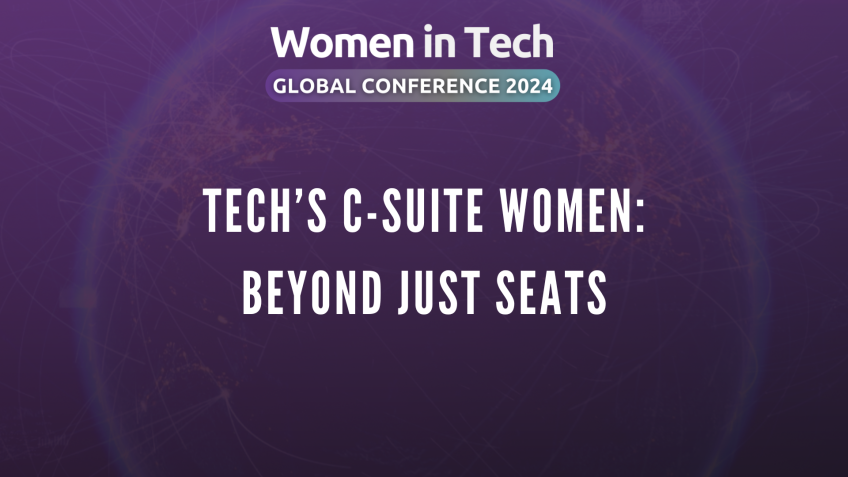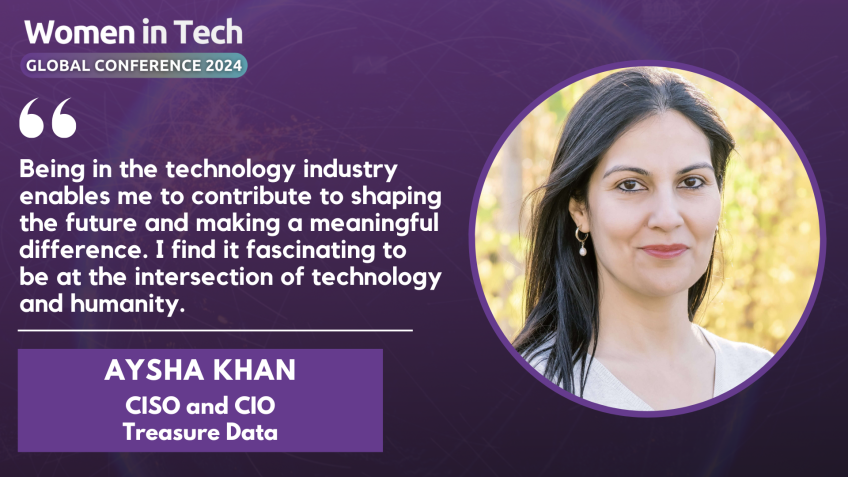Ekaterina Matveeva - How to Manage International TeamsApply to Speak
Around the World: Understanding and Managing Cultural Differences
The Diversity of Cultures
Hello everyone! Today, we are going to explore the fascinating topic of cultural differences and how they impact our professional and personal lives. From the sunny beaches of Miami to the bustling streets of Barcelona, we are all uniquely shaped by the cultures we come from.
Cultural intelligence is a vital skill for managing international teams. It involves understanding the differing perceptions, behaviors, and values of individuals from diverse backgrounds. Let's dive into this exciting journey of cultural indulgence.
The Role of Cultural Intelligence in Team Management
In a globalized world where everyone is virtually connected, time zones and geographical barriers often blur. Many of us have experienced the challenges of coordinating with colleagues across eight, fifteen, or even more time zones. It's more than just juggling different continents; it's about managing variations in cultures, languages, and biological patterns.
Understanding these differences calls for a combination of emotional intelligence (EQ), love intelligence (LQ), and cultural intelligence (CQ).
Where EQ involves the ability to express emotions appropriately, LQ is about being kind, both to others and to oneself. CQ, on the other hand, is the skill to adjust to unfamiliar contexts and communicate effectively with people from diverse backgrounds.
To break it down, cultural intelligence entails three key components - knowledge, mindfulness, and behavior. These enable us to develop a repertoire of responses tailored to the cultural context, helping us navigate through international interactions effectively.
Culture in the Workspace
When it comes to the corporate world, not only are we required to recognize cultural differences, but similarities too. By discussing these distinctions and resemblances, we can create a multicultural space in the company, celebrating diversity and recognizing every individual's unique approach to tasks, deadlines, and the general work environment.
Creating this shared understanding in the cognitive map within your company is crucial. It's about recognizing that we may have different perceptions of time, tasks, deadlines but we can establish our own rules here so that everyone feels respected and valued.
Navigating Differences in Cultural Perceptions
One of the fundamental aspects to consider while managing an international team is the perception of time across different cultures. For instance, German professionals may perceive a deadline as something that is already behind, while Spaniards may see it as something in the future.
Understanding these seemingly minor cultural nuances is essential to organize your team effectively. Once you grasp the different 'time flows' in each culture, you can tailor your management approach to fit these individual perceptions.
Creating Shared Meaning Across Cultures
Every individual is capable of embracing a variety of worldviews. Recognizing this is the first step in creating a shared meaning in a multicultural team. By understanding the differences and similarities in perceptions of time, task, and authority, you can negotiate and establish a shared understanding within your team, effectively curating your own company culture.
Conclusion
In closing, managing a culturally diverse team extends beyond just acknowledging the differences. It's about taking into account each individual's unique perceptions, values, and behaviors and aligning them to create a shared vision - your company culture.
Remember, even though we are different, we are the same. So, embrace cultural differences, welcome the diversity, and let's leverage them to build a world of inclusivity and understanding.
Thank you for joining me in this fascinating exploration of cultural differences. I look forward to our continued cultural indulgence.
Video Transcription
All right. All right. Hello, everyone. Well, good morning. Good afternoon. Good evening. Good night. I don't know. I'm actually in the afternoon but a lot of the people, yeah, are all around the world. So, whatever you're doing, keep doing it and I hope you're having fun.The conference is really exciting, please. Yeah. Feel free to type. Whether, yeah. Oh, hello, Glasgow. Yeah. Feel free to type. Whether you're like feeling tired, excited. Yeah. Whether it's like rainy or sunny where you, I'm right now in the mountains and we're, you know, between like mountains of a Paz jura somewhere there. Just like passing by. Quite exciting. Hello? From Barcelona. Great. Hello. Hello, from Germany. Yeah. Be, hello. Hello, ladies. Yeah. Very exciting.
And thank you so much for joining my session today. Yeah. Yeah, Miami. Yeah. Yeah. So, yeah, this is really cool. So, yeah. So, hello. Room? Wow. Wow. More Germany. More Switzer. A lot of German girls are here today. That's great. That's amazing. Well, so, as you can see, I'm a extreme but it's international name in every language of culture. I have my personal, you know, name. So in English I'm ked. So feel free to address me this way, Finland. Hello Romania. I will be like also jumping into the chat because it's so exciting here as well. So ladies today, I will be addressing yeah, such big question, culture, cultural indulgence and how we can try to understand it better and what kind of capabilities, skills we need in order to manage international teams. So also we are here like women in tech and also yeah. hello, Texas. So women in tech and now we may have some challenges with tech. I've been testing today, some of you as well who have been speaking here, like how it works uh in terms of, you know, the presentation. So let's see. Uh Let me know when I'm going to share my screen, whether you can see it if you can't see it well, so I'm here, you know, with my face anyways now, I hope, yeah, you can see it. Yeah, fantastic. I'm trying, you know, to manage like two screens.
So anyways how we can manage international team. I don't know if you've also like, you're familiar with this when you're using one over collaboration apps and you've got this gosh, tons of people, a lot of time zones. This is like eight time zones and this is not like our biggest is like 15 time zones and it's not just about well, different continents, it's also different cultures, different like biological and sometimes it's just so confusing that you have to check yourself on phone. Ok.
What is the time here? What is the time there? Like, I'm conscious? Like my computer is always on UK Time wherever I am because otherwise I'll just go crazy. So I would say this is like, first if you can relate, feel free as well to comment, this is important. So that the start. Yes. So first not to get lost indeed in all this time differences. But then we jump into communication and well, maybe you've heard of this, we have well intelligence, right? So IQ quite important. But so yeah, debatable. Then we've got EQ emotional intelligence, LQ, love intelligence and CQ, cultural intelligence. Well, maybe the three are not definitive.
So emotional intelligence, we've heard about it. And today there've been a few people who've been actually shed some light in this particular quarter. So its capacity yet to be we express emotions. And indeed, I believe it's super important for an international leader to well put it and the end well applied in relationships at work, especially when there's so many different opinions and perceptions of the world. Then in order to be a successful leader according to Jack Ma.
Well, we all remember him, I believe you need to have not only emotional intelligence, IQ but also LQ and he was talking about it. Maybe you remember that love intelligence and the ability to be kind. Yeah, and not just kind to people but also to yourself. And again, being an entrepreneur and going through so many challenges, I must tell you well, without it, I would have been, who knows where sort of like being harsh myself, right? And like self criticizing myself. But no, if you go with love intelligence, everything is smoother.
Even if there are conflicts, you can find the way to be kind to people and not to just like cut it. Definitely. OK, we're not talking anymore. There it is. And then obviously with good cultural intelligence and this is beautiful. Like this is a beautiful ability to adjust to unfamiliar contexts to find the way to communicate with people and also communicate with them in an effective way. When you know, you've got to go with the name, you gather these people from different backgrounds and you manage to well give them a message, sort of like good to convey this message to them and they actually follow you. Oh, they go all together. Yeah. Hello, Florida. Hello.
Yes. At the end when we talk about this cultural intelligence, we need to remember about three components. So this is knowledge, mindfulness and behavior. But knowledge definitely, I would say you can use theoretical knowledge, practical one, like reading a lot watching going on different seminars during whatever year, mindfulness adds already about your ability to perceive your own emotions is like very tied up with emotional intelligence and actually allow people to experience and express their different emotions and then its behavior obviously here.
Um It's important in kind of company culture. We talk a little bit about it today as to find a way how to behave appropriately because something in one culture can be appropriate and then another one completely like, no, no. So they three and what I love about it that well, cultural intelligence people. Yeah. According to the Thomas, you have this behavioral capability. Yeah. And then they can become competent. Yeah, in various diverse cultural situations and they choose their behavior. Yes. So they develop their own repertoire.
So they, they have this repertoire from which they can choose. OK. Today, I am this one, I'm talking to my colleagues from Latin America. I know relationships are important to them. All right, I will focus here that tomorrow, I'm talking to my colleagues. Well, in Germany objectives, tasks are very important to them. OK? We will focus down on tasks and work together. So there's so many different ways, right? Hello, New Jersey. And I know that um a lot of us here today uh speak two and more languages like I myself who work in nine languages sometimes even more. It depends, you know where it is. But even if you are bilingual or Multilingual being doesn't mean doesn't imply that you also bicultural, multicultural, it means that even if you speak in another language, you need to dive into its culture. Yeah. And ca behaving. So what are we good here about company? Culture especially.
Yeah, like right now in our entrepreneurial context that we need to recognize not only differences but also similarities and we need to organize these talks. So for example, you are a leader, you're a leader and development team, whether it's like design, whatever it is customer service. Yeah, success.
You need to hold talks, round tables, zoom calls with your colleagues with your employees where you will discuss all the differences and similarities and you can give tasks to your employees. Say all right now we need to find what, what are like similar traits we will have. And there you start creating your own multicultural space because company culture, we can say, all right, this is globalization as as it is but no. Well, company culture is like puzzle, you know, mosaic. Yeah, bricolage you can say that consists of all the different cultures, behaviors, perceptions.
And it's very important to bring all these diverse ideas together and celebrate them and recognize all people from different cultures in your company and see the way how they well approach tasks, deadlines time space. We will talk about this today a little bit. So that's, that's kind of the core idea that you manage to bring them all together and have a chance to talk. And this really helps in conflict situations because if you so like mediate, yeah, in between and you help those parties to express their opinions from their cultural points of view from their perceptions, then you may find out that actually there is no conflict, they just have slightly different opinions, but actually they think in the same way happened so many times now saying, all right.
So one there is very important part is about creating this shared meaning. Yeah, you need to create this shared meaning in a cognitive map in your company. And what's really cool about this one phrase? Yes. So how can you create it when there's like an alien? Yeah, from another planet. So we all can treat each other aliens, yeah, from different planets. But overall when we start thinking, OK, how to create it, we bump into all those different ideas. OK. Here we're similar here, we're different. How can we play with all these components in order to align our perceptions and reach the goal? And here we have like four stages of liberation. This is like from a book God that was in the great book, Broken God, fiction, loving it. And they have like a system. So different Plexus and stages, they're simplex when one person is just in their culture and their perception. And typically um we can think about this people like nationalists, racist, they are typically there. They've got a single world here and they are very dangerous. Obviously for company. Yeah, for your team. But you can shift even if you feel that you exist, it's OK, you can shift, you can shift to the next stage which is called complex. So a person who holds at least two different realities. Um People who migrated, yeah, people who study in different country. Um People who are trying to immerse themselves in another culture. So this is complex.
You've got um one system of belief, one culture where you grew up and now you're in different one. This is complex. So you kind of self understanding. OK. It used to be this way. Now it's different. Then there is multiplex. It's when you can be in different realities. Like at the same time, let's say you speak three languages and you actually live in like 23 countries. So you can move around between these cultures, cultural dimensions. And I feel like, OK, there are more truth than one and then there's omniplex and this is like all possible realities at once. Honestly, this is like like level 70 level 80 as you say, because this is typically like Dalai Lama or somebody like this who could actually justify even bad things happening. Obviously, uh it's very rare. So say that we've got simplex complex and multiplex. And if you could create this multiplex reality in your meaning that you agree with your employees, with your colleagues, that all right, we've got many realities. At the same time, we recognize that we've got different perceptions of time task deadlines. We just need to establish our own rules here so that nobody gets hurt. That's beautiful, but it's extremely challenging so you can check out, yeah, the stages of liberation, this may help you in a dialogue with your team.
So each individual is capable of embracing this variety of world views. And you just need to check yourself where you are right now and then you can also talk with your employees anyways. Then there's a really cool one about this differences and similarities. So some time ago in 2019, I was ordered to have a talk with Dr Maura. So he is a French scientist who became a monk and he's been working with Dalai Lama and I was jumping on this card that we are different, right? So it's how can we communicate if you are in the same space? Well, he was shed light on this very fundamental notions that we are the same and our six basic emotions are the same. Therefore, whenever you are in this conflict, yeah, let's say some of your employees in a conflict, you need to remember. OK, we've got the different perceptions. Plus we've got this basic emotions and this basic emotions may be manifested in slightly different ways, but still in the core, they are the same. So we can relate to grief. We can empathize. We have maybe different ideas, love, but we still have this fundamental feeling very deep inside so we can relate. And we, yeah, we did, we had a friendly debate with him saying that all right, we are the same in the very core. Yeah.
So there is this foundation before sour context and then we are different the way how we perceive and express ourselves. So just try to put it together that whatever happens still, we are the same even though we are different anyways here. Important when you're working with him, let's say it's project management right now. We are in the middle of project management and it's crazy because there's perception of time and space and then it's this relationships and tasks and authority. So what's happening? We've got some Germans here and I got excited because when you're planning, well, according to Richard view is loving him. So when you're planning, whereas let's say Spaniard and Germans, what we see here, that's beautiful illustration that the deadline kind of in the perception of, well, there's two cultures different. So for the Germans and you ladies may confirm this or may not, right? So the delivery date is kind of already behind even though like June 9, actually tomorrow for a lot of people, it will be like yesterday. But for Spanish, yeah, for Spanish houses be like somewhere there up front. Therefore we know there is this kind of stereotype of Spanish people are late or less Americans are late. No, it just the perception of type is slightly different. Yes.
So, so well for German Swiss or is like, OK, yeah, this is like June 9, we'll write this tomorrow, but actually it must have been done yesterday. Ok, done. That's why it's like speciality, not always. Then obviously there is a schedule and you can see this funny schedule of like theory reality how everything is moving because the flow of time is different and you need to take this into account. Yeah, when you, you are right, kind of, yeah, when you're working with people from like their like different cultures, please take into account their time flow. And if you notice that all these people have some trouble, maybe they are not in time, et cetera check because there's so many different, you know, uh research studies right now. Yeah, and publications. And as soon as you understand that time flow, it will be much easier for you to organize a team and the whole process, it means you can tell them in advance when it's like when is the deadline? Like instead of saying, OK, our deadline is in September, it's like, you know, hacks say that the deadline is in August and so they will be late for well for August. But actually, yeah, they will complete it in September. That's like super important. Hello. Hello. Hello. Yeah, hello.
Yeah, great. Then we've got as well. Yeah, Chinese perception maybe some of you. Yeah, working with Asia. Well, here's like crazy thing because as you can see here, it's like all somewhere like present future is somewhere like behind literally passes in front. So the whole flow of time is different like circular. So for you to understand as well, the flow of time in nature, you need to, well, try to fill it. Imagine that you will move into the future with your back because it's unknown, you can't see it, but the past is in front of you. I'm telling you all this because I believe when we jump here into wealth management and we're with international clients, international partners, we just don't, don't think about it. And as soon as we start touching like, oh no, they d oh no, I don't understand. But instead of like, I don't understand, try to embrace it as we talked about it, right? So this flex and as soon as you start filling it a little bit, it gets easier. You won't get crazy if you watch the movie arrival. Yeah, like science fiction, you may remember what happened there. So like how the protagonist started seeing a little bit of the future because of the aliens anyway. So we are playing around here. So also they about numbers but probably this is like quite popular. What is negative?
What is positive numbers? So please remember about superstitions, connotations, context because what means in one context may be completely not the same in the other one. Therefore please take it into account also not only with your teammates but with clients and what's important.
The last thing is about well, mindset and culture. Remember that you've got culture, cultures can be so different, there is mindset. And if you bring together all the developers, let's say in one room, it will, it will be much easier for developers from different cultures to talk rather than from people from the same culture. But from, from social layers to talk because there is terminology in their jargon.
They don't be afraid if you've got like certain nationals in your team, even though they're in the same sort of like circle because still you will have this touchdown points where you can negotiate where you can talk like in the same language. Therefore, I must say like we must finish up here. So like even though we are different, we are the same. And for you as just to be open to remember about knowledge, mindfulness and behavior and try to align all the worldviews, have a talk with your colleagues, with your employees. Find out what is their perception task with authority. Uh Well, space time and then see how you could put it all together in order to create your own company culture. Well, thank you so much. This is me. This is a lingual. Uh Please follow us. Yeah, Instagram, linkedin, Facebook and Well, happy to chat in the networking room later, Tao.





